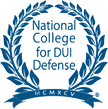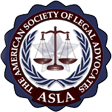Although prescription drugs are formulated to help people alleviate the detrimental effects of certain illnesses and health conditions, many are also highly addictive. The consequences for possessing illegal prescription drugs can result in penalties as serious as any other drug charge. Prescription drug addiction can begin innocently by taking powerful, yet effective medicine to reduce pain. However, a destructive habit can form if you develop an addiction to the drug. In some lives, this may lead to the illegal possession of prescription drugs through forging or falsifying prescriptions.
To set up a free, initial case consultation with one of our Seattle prescription drug fraud lawyers, call us today at 206-973-0407, or use our convenient contact form.
Prescription Drug Fraud
Lawmakers in the state of Washington and around the nation have passed laws to deter the practice of citizens abusing prescription drugs. Pharmacies and individual doctors are required to abide by these rules when writing prescriptions. Prescription drug fraud occurs when individuals attempt to gain illegal possession of prescription drugs either for personal use or to distribute to others. Individuals charged with these types of crimes need the assistance of Seattle prescription drug fraud lawyers.
Some of the most common forms of prescription drug fraud include:
Duplicate Prescriptions
This type of fraud occurs when you have a legal prescription for a drug and create multiple copies of the prescription and fills that prescription at multiple pharmacies.
Stealing Doctor’s Prescription Pads
This crime occurs when medical personnel or anyone who has access to a doctor’s prescription pads uses those pads to fill out fraudulent prescriptions to access pills or medicine.
Physician Shopping
This form of prescription drug fraud occurs when you visit multiple doctors offering the same symptoms in order to obtain multiple prescriptions for the same drug.
Prescription Drug Laws in Washington State
If you commit a prescription drug offense, you have committed a Violation of the Washington Uniform Control Substances Act (VUCSA). The Act has an entire section that covers prescription drug laws. The purpose of these laws is to prevent individuals from doing multiple things, including obtaining illegal possession of prescription drugs, and stopping medical personnel from mishandling these drugs.
According to the Revised Code of Washington (RCW) 69.50.308:
- Other than a doctor directly giving a drug to a patient, a Schedule II drug (which would include Oxycodone/OxyContin) may not be dispensed without a doctor’s prescription in written or electronic form.
- Schedule II drug prescriptions may not be refilled. They must be filled in six months or less from their issue date.
- Any prescription transmitted via fax must originate directly from a physician’s office.
- Other than a doctor directly giving a drug to a patient, a Schedule III, IV, or V drug may not be dispensed without a doctor’s prescription in written, oral, or electronic form.
- Doctors are not permitted to write Schedule II, III, or IV drug prescriptions for their own personal use.
- A Schedule III, IV, or V drug prescription may only be refilled a maximum of five times, and must be filled and refilled in six months or less from its issue date.
Prescription Drug Fraud Penalties
The penalties provided for prescription drug fraud in Washington vary depending on particular factors, including the quantity of prescription drugs involved. Depending on the circumstances of a case, our prescription drug fraud attorneys may be able to have these penalties reduced or eliminated.
Per RCW 69.50.401, it is illegal to manufacture, deliver, or possess with intent to manufacture or deliver any controlled substance. This includes possession of prescription drugs.
For drug crimes involving Schedule I, II, or IV drugs (narcotic drugs) or flunitrazepam, including its isomers, salts, and salts of isomer, penalties include:
Class B Felony
- 10-year maximum prison sentence
- Up to $25,000 in fines (drugs less than two kg)
- Up to $100,000 in fines (drugs more than two kg)
- Amphetamine offenses carry a $3,000 minimum fine
For crimes involving Schedule I and all other Schedule II and III drugs, all other Schedule IV drugs, and all Schedule V drugs:
Class C Felony
- Five-year prison sentence
- Up to $10,000 in fines
A doctor or pharmacy employee who knowingly permits prescription drug abuse or participates in the abuse can be subject to penalties as well. This includes facilitating the illegal possession of prescription drugs.
Per RCW 69.50.402, any person who violates the prescription drug laws laid out in RCW 69.50.308 faces the following penalties:
Class C Felony
- Up to two years in prison
- Fines reaching $2,000
RCW 69.50.403(c) makes it illegal to:
Obtain or attempt to obtain a controlled substance, or procure or attempt to procure the administration of a controlled substance by the means of:
- Deceit, fraud, misrepresentation, or subterfuge
- Forgery or the modification of a prescription or any written order
- Concealment of a material fact
- Giving a false address or using a false name
This law includes forging prescriptions, providing false information to a pharmacy, falsely labeling the prescription drug, possessing a fraudulent prescription, and providing a false registration number
The penalties for violation of this section include:
Class C Felony
- A prison sentence of up to two years
- Up to $2,000 in fines
Talk to our Seattle Prescription Drug Fraud Lawyers Today
If you are facing charges of prescription drug abuse, prescription drug fraud, illegal possession of prescription drugs, or any other infringement of the Uniform Controlled Substance Act in Washington, you need strong legal advocacy. At Emerald City Law Group, we can provide you with effective representation, fighting for the lessening or dismissal of your charges or penalties.
Call one of our Seattle criminal defense attorneys at 206-973-0407 for a free initial consultation.






